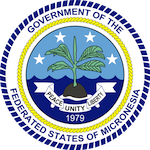by John Stang
Micronesian, Marshallese and Palauan nationals who live in Washington might see increased state support of their health insurance, as a bill winds its way through the Washington state legislature this session.
The Federated States of Micronesia, the Marshall Islands and the Republic of Palau are covered by the Compact of Free Association, or COFA — an agreement that puts the three nations under the protection of the U.S. government.
Those three island nations also were the sites of more than 60 nuclear tests between 1946 and 1958. The effects of the nuclear fallout on the residents’ health are still being felt today, said state Rep. Sharon Tomiko Santos, D-Seattle, a sponsor of the legislation.
However, while citizens of the three nations may live and work in the United States, those who otherwise would qualify for Medicaid fall between the cracks.
“One of our priorities is to reduce the health disparities that affect our communities,” said Michael Itti, the commission’s executive director.
About 6,500 people from the three nations live in Washington — the third largest population in the U.S. behind Hawaii and California — and roughly 2,600 of them could use better state-supported health insurance, supporters of the legislation say.
But despite the chronic health issues being linked to the U.S.’s nuclear testing, citizens of the three COFA Pacific Islands who live in the United States are not eligible for Medicaid.
Santos and state Sen. Rebecca Saldana, D-Seattle, sponsored legislation that would help Washington’s COFA islanders pay for insurance under the state health insurance exchange.
To be eligible, a COFA islander has to live in Washington, earn up to 133 percent of the federal poverty level, and be ineligible for any other state or federal benefits including Medicaid.
Under the bills, the state would be required to set up enrollment procedures at the state health insurance exchange and conduct a public outreach effort. The bills would allocate $3.9 million to this effort over the next two years.
The bill passed the House last week 51 to 47 and is now proceeding through the Senate.
To go to the full piece at The Seatle Globalist, click here.

